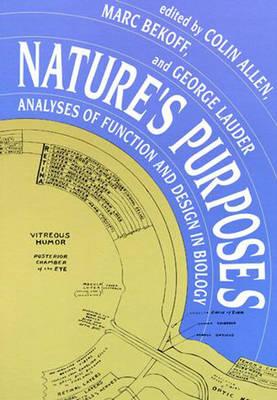Overview
Within the natural sciences, only biologists take seriously teleological statements about design, purpose and adaptive function. Some biologists claim that to understand the complex morphological and behavioural traits of organisms we must say what they are for, which is to give a teleological explanation of why organisms have them. Others argue that the theory of natural selection, in providing statistical explanations for the same phenomena, obviates any need for teleological thinking. If teleology cannot be eliminated from biology, it raises fundamental questions about the nature of biological explanation and about the relationship of biology to the rest of science. To account for ""nature's purposes"" is arguably the most important basic issue in the philosophy of biology. This volume aims to provide a guide to the discussion among biologists and philosophers about the role of concepts such as function and design in an evolutionary understanding of life. All of the contributors examine biological teleology from a naturalistic perspective, most of them maintain that teleological claims in biology both describe and explain something - but opinions vary as to exactly what is explained and how.
Full Product Details
Author: Colin Allen (Indiana University) , Marc Bekoff , George Lauder
Publisher: MIT Press Ltd
Imprint: MIT Press
Dimensions:
Width: 15.20cm
, Height: 3.60cm
, Length: 22.60cm
Weight: 0.953kg
ISBN: 9780262510974
ISBN 10: 0262510979
Pages: 603
Publication Date: 24 April 1998
Recommended Age: From 18 years
Audience:
College/higher education
,
Professional and scholarly
,
Undergraduate
,
Postgraduate, Research & Scholarly
Format: Paperback
Publisher's Status: Unknown
Availability: Out of print, replaced by POD 
We will order this item for you from a manufatured on demand supplier.
Table of Contents
Part 1 Looking backwards - teleology as etiology: teleological explanations in evolutionary biology, Francisco J. Ayala; functions, Larry Wright; biological teleology -questions and explanations, Robert N. Brandon. Part 2 Don't look back - nonhistorical approaches to biological teleology; the inference of function from structure in fossils, M.J.S. Rudwick; adaptation and the form-function complex, Walter J. Bock and Gerd von Wahlert; functional analysis, Robert Cummins; teleology revisited, Ernest Nagel; functions, John Bigelow and Robert Pargetter; where's the good in teleology?, Mark Bedau. Part 3 Critical developments: in defense of proper functions, Ruth Garrett Millikan; functions as selected effects - the conceptual analyst's defense, Karen Neander; function without purpose - the uses of casual role function in evloutionary biology, Ron Amundson and George V. Lauder; functions and goal directedness, Berent Enc and fred Adams; function, fitness and disposition, Sandra D. Mitchell. Part 4 Synthesis or pluralism?: the concept of function, R.A.; functional analysis and proper functions, Paul E. Griffiths; a modern history theory and proper functions, Peter Godfrey-Smith; function and design, Philip Kitcher. Part 5 Design: historical biology and the problems of design, George V. Lauder; exaptation - a missing term in the science of form, Stephen Jay Gould and Elizabeth S. Vrba; adaptation and the form-function relation, Carl Gans; biological function, adaptation, and natural design, Colin Allen and Marc Bekoff.
Reviews
Author Information
Colin Allen is Professor of Philosophy at Texas A&M University. He is the coauthor of Nature's Purposes (MIT Press, 1998), Species of Mind (MIT Press, 1997), and The Cognitive Animal (MIT Press, 2001). Marc Bekoff is Professor of Environmental, Population, and Organismic Biology at the University of Colorado, Boulder.
Tab Content 6
Author Website:
Countries Available
All regions
|



